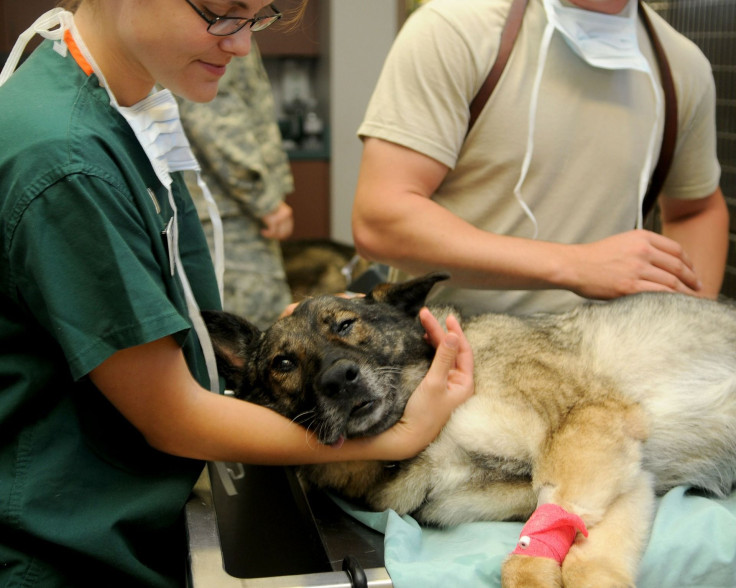Snow Leopard Dies Of COVID-19 After ‘Coughing’ And ‘Raspy Respiration’
KEY POINTS
- A snow leopard named Rilu died at Illinois' Miller Park Zoo after it struggled with COVID-19-induced pneumonia
- The leopard was among the zoo's five big cats that tested positive for the virus in early December last year
- The current conditions of the other big cats are unclear
An 11-year-old snow leopard at a zoo in Bloomington, Illinois, has died after it contracted the coronavirus.
The animal, who was named Rilu, died after it struggled with COVID-19-induced pneumonia, Miller Park Zoo said in an Instagram post Thursday.
Rilu was among the zoo's five big cats — one Sumatran tiger and four of Rilu's kind — that tested positive for the coronavirus in early December last year, according to a statement from the City of Bloomington.
Signs of COVID-19 in the cats were first observed on Nov. 20, 2021, when Rilu "began coughing and had a raspy respiration," The Guardian reported.
The current conditions of other big cats are unclear, but they underwent veterinary treatment after testing positive, a report by WEEK said.
Rilu is survived by seven offspring that are now part of the American Association of Zoos and Aquariums' Species Survival Plan, according to Miller Park Zoo, which is located on 1020 South Morris Avenue.
The snow leopard was reportedly responsible for making Miller Park Zoo "one of the leading institutions in the world in producing snow leopard cubs.”
"Rilu’s personality and beauty will be missed by guests and staff, but he will not be forgotten," Miller Park Zoo said in its statement.
His "legacy" will now live on in The Photo Ark project of photographer Joel Sartore, whose pictures and videos of Rilu have been shown "all over the world," according to zoo superintendent Jay Tetzloff.
"Rilu will engage and astonish the world for many years to come," Tetzloff said.
While the risk of animals spreading COVID-19 to people is low, humans can still pass the virus to animals during close contact, according to the Centers for Disease Control and Prevention (CDC).
"Recent experimental research shows that many mammals, including cats, dogs, bank voles, ferrets, fruit bats, hamsters, mink, pigs, rabbits, racoon dogs, tree shrews and white-tailed deer can be infected with the virus," the agency said.
Visitors of Miller Park Zoo are required to wear masks at all of the site's indoor spaces, the zoo said.
Snow leopards, which used to be listed as endangered in the International Union for Conservation of Nature's Red List but are now considered vulnerable, "are proving extremely susceptible to the disease," Sartore said.
"If you haven't received a vaccination and booster yet, please do so. It's more than just human lives that are at stake," the photographer said in his Instagram tribute to Rilu.
The U.S. has reported around 60.2 million COVID-19 cases and 837,664 virus-related deaths as of Sunday, according to data provided by Johns Hopkins University.

© Copyright IBTimes 2025. All rights reserved.





















